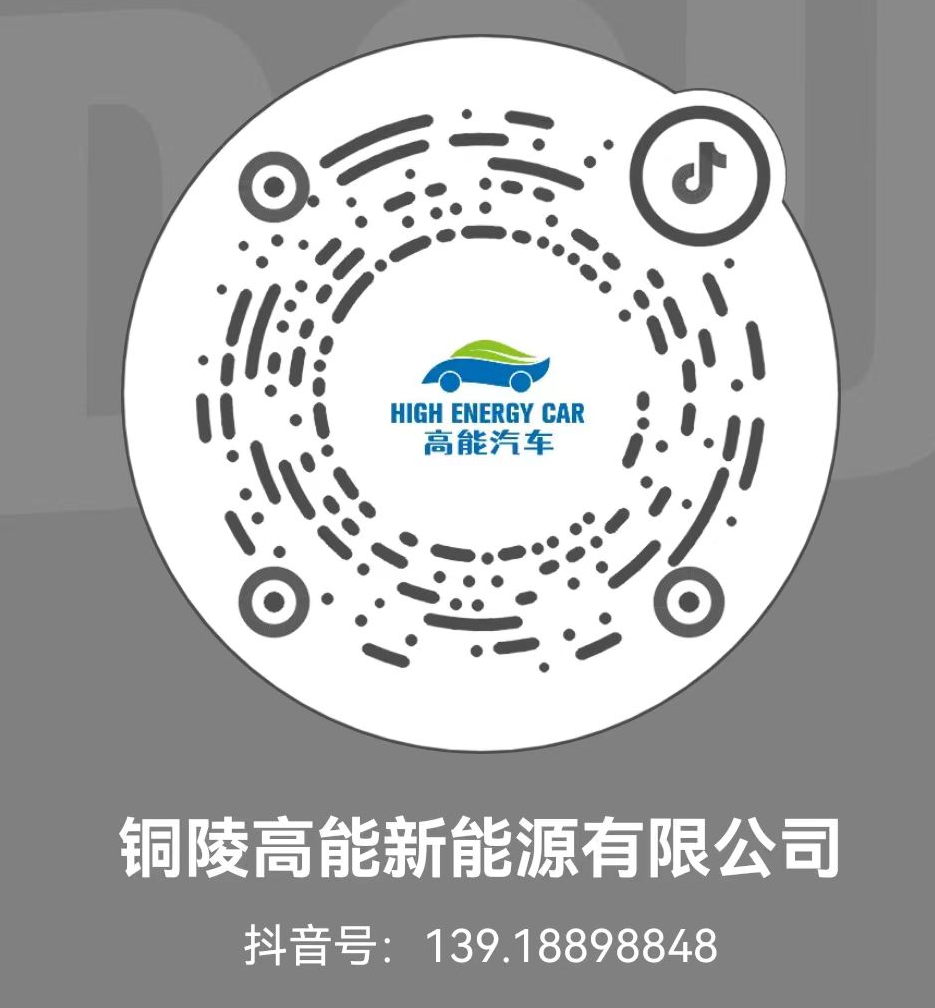-
![]() Repairs and maintenanceProvide regular maintenance and upkeep services, including changing lubricating oil, checking batteries, and maintaining brake systems. This helps to maintain vehicle performance and safety.
Repairs and maintenanceProvide regular maintenance and upkeep services, including changing lubricating oil, checking batteries, and maintaining brake systems. This helps to maintain vehicle performance and safety. -
![]() TroubleshootingResolve vehicle malfunctions and issues, including battery issues, charging equipment malfunctions, motor issues, etc.
TroubleshootingResolve vehicle malfunctions and issues, including battery issues, charging equipment malfunctions, motor issues, etc. -
![]() warranty serviceProvide vehicle warranty services to cover any issues that occur during the warranty period, including component failures and process issues.
warranty serviceProvide vehicle warranty services to cover any issues that occur during the warranty period, including component failures and process issues. -
![]() Emergency Road AssistanceProvide emergency road assistance to users in the event of malfunctions or accidents, including towing services and emergency repairs.
Emergency Road AssistanceProvide emergency road assistance to users in the event of malfunctions or accidents, including towing services and emergency repairs. -
![]() Battery serviceProvide specialized services for battery maintenance and troubleshooting to ensure battery performance and lifespan.
Battery serviceProvide specialized services for battery maintenance and troubleshooting to ensure battery performance and lifespan. -
![]() Charging facility supportAssist users in resolving issues with charging devices, and provide installation and maintenance services for charging stations.
Charging facility supportAssist users in resolving issues with charging devices, and provide installation and maintenance services for charging stations. -
![]() technical supportProvide technical support and consultation to help users understand the functionality, operation, and maintenance of the vehicle.
technical supportProvide technical support and consultation to help users understand the functionality, operation, and maintenance of the vehicle. -
![]() After sales trainingProvide training for users on new energy vehicles to ensure they fully understand the characteristics and usage methods of the vehicle.
After sales trainingProvide training for users on new energy vehicles to ensure they fully understand the characteristics and usage methods of the vehicle. -
![]() Online supportProvide online customer support, including online chat, phone support, email support, etc., to address user issues and concerns.
Online supportProvide online customer support, including online chat, phone support, email support, etc., to address user issues and concerns. -
![]() Regular reminders and service remindersSend regular maintenance and service reminders to users to help them maintain their vehicles in optimal condition.
Regular reminders and service remindersSend regular maintenance and service reminders to users to help them maintain their vehicles in optimal condition. -
![]() Spare parts and component supplyEnsure readily available spare parts and components to support maintenance and replacement.
Spare parts and component supplyEnsure readily available spare parts and components to support maintenance and replacement. -
![]() Vehicle tracking and monitoringUse remote monitoring and vehicle tracking technology to help users manage the performance and status of vehicles.
Vehicle tracking and monitoringUse remote monitoring and vehicle tracking technology to help users manage the performance and status of vehicles. -
![]() Charging network supportProvide user guides and support to help users find appropriate charging facilities and plan charging routes.
Charging network supportProvide user guides and support to help users find appropriate charging facilities and plan charging routes. -
![]() Environmental ServicesProvide safe disposal and recycling services for waste batteries to reduce their impact on the environment.
Environmental ServicesProvide safe disposal and recycling services for waste batteries to reduce their impact on the environment.

-
·What does the automotive aftermarket refer to?
The aftermarket of automobiles refers to the various services provided during the use of automobiles after they are sold, covering all the services that consumers need after buying a car. The earliest classification of this market was based on the order of automobile sales, which can be roughly divided into seven major industries: automotive maintenance industry; The automotive finance industry; The automotive IT industry; Automobile maintenance industry (automobile boutique, supplies, beauty, quick repair and modification shops); The automotive maintenance and accessories industry; Automotive culture and automotive sports industry; The second- hand car and car rental industry. In addition to the seven major industries mentioned above, many new sub sectors have emerged in recent years, such as:
1. Automotive Internet and E-commerce: This field includes various automotive related websites, apps, and e-commerce platforms, providing consumers with online car purchase, maintenance, and accessory purchase services.
2. Intelligent transportation and sharing economy: With the rise of new modes of transportation such as shared bicycles and shared cars, this field is also constantly developing and growing.
3. New energy and environmental protection technology: With the improvement of environmental awareness and the popularization of new energy vehicles, the development prospects in this field are broad.
4. Automobile culture and entertainment: This field includes automobile museums, automobile theme parks, automobile sports events, etc., providing consumers with a rich experience of automobile culture.
Overall, the automotive aftermarket is a vast and diverse market that encompasses various services related to the use of automobiles.
-
·The various services during the use of automobiles mainly inclu
The aftermarket of automobiles refers to the various services provided during the use of automobiles after they are sold, covering all the services that consumers need after buying a car. The earliest classification of this market was based on the order of automobile sales, which can be roughly divided into seven major industries: automotive maintenance industry; The automotive finance industry; The automotive IT industry; Automobile maintenance industry (automobile boutique, supplies, beauty, quick repair and modification shops); The automotive maintenance and accessories industry; Automotive culture and automotive sports industry; The second- hand car and car rental industry. In addition to the seven major industries mentioned above, many new sub sectors have emerged in recent years, such as:
1. Automotive Internet and E-commerce: This field includes various automotive related websites, apps, and e-commerce platforms, providing consumers with online car purchase, maintenance, and accessory purchase services.
2. Intelligent transportation and sharing economy: With the rise of new modes of transportation such as shared bicycles and shared cars, this field is also constantly developing and growing.
3. New energy and environmental protection technology: With the improvement of environmental awareness and the popularization of new energy vehicles, the development prospects in this field are broad.
4. Automobile culture and entertainment: This field includes automobile museums, automobile theme parks, automobile sports events, etc., providing consumers with a rich experience of automobile culture.
Overall, the automotive aftermarket is a vast and diverse market that encompasses various services related to the use of automobiles.
-
·An overview of the main aspects of automotive aftermarket services
-
·The after-sales service of new energy vehicles mainly includes the following parts
1. Quality assurance policy.
New energy vehicles usually enjoy a longer warranty period, which depends on the vehicle model and manufacturer, and generally lasts for more than 3 years. During the warranty period, consumers can enjoy free repair and component replacement services.
2. Charging facility support.
The after-sales service policy for new energy vehicles usually provides support for charging facilities, including providing consumers with information on charging stations, and providing installation and maintenance services for charging equipment.
3. Battery life guarantee.
The battery of new energy vehicles is the core component of the vehicle, and after-sales service policies usually provide battery life assurance. If the battery capacity is guaranteed, ensure that the battery capacity will not fall below a certain value within a certain period of time; Battery performance guarantee, ensuring that the battery performance will not decrease within a certain period of time.
4. Training and consulting services.
Operators should provide consumers with no less than 4 hours of cumulative training on the use and maintenance of new energy vehicles, including charging precautions, handling unexpected situations during driving, and daily maintenance of key components such as vehicles and power batteries.
-
·Special after-sales service for new energy vehicles
1. Quality assurance policy.
New energy vehicles usually enjoy a longer warranty period, which depends on the vehicle model and manufacturer, and generally lasts for more than 3 years. During the warranty period, consumers can enjoy free repair and component replacement services.
2. Charging facility support.
The after-sales service policy for new energy vehicles usually provides support for charging facilities, including providing consumers with information on charging stations, and providing installation and maintenance services for charging equipment.
3. Battery life guarantee.
The battery of new energy vehicles is the core component of the vehicle, and after-sales service policies usually provide battery life assurance. If the battery capacity is guaranteed, ensure that the battery capacity will not fall below a certain value within a certain period of time; Battery performance guarantee, ensuring that the battery performance will not decrease within a certain period of time.
4. Training and consulting services.
Operators should provide consumers with no less than 4 hours of cumulative training on the use and maintenance of new energy vehicles, including charging precautions, handling unexpected situations during driving, and daily maintenance of key components such as vehicles and power batteries.


latest news about HIGH ENERGY CAR
- CAR EV CAR EV MINI CAR
- Core products
- EVCS AC EV CHARGER DC EV CHARGER STATIONS EVC Service
- Accessory Auto parts Battery maintenance accessories Copper product parts
- special Service Membership Services Overseas marketing to store Industry solutions Distribution and agency Car purchase service Import and export services Battery recycling services Parking services Car rental services Road rescue services after-sale service User participation and rewards service network Data download
- Barter and Development Global Barter Research Center Global Development and Innovation Center KD/SKD joint construction technology output Automobile testing ground Vehicle Research Institute Docking with Automobile Associations of Various Countries Mineral resources sales category
- About us Company Profile Partners Videos Contact information News Campus recruitment Join Us WHY CHOOSE US























